What are the physical symptoms of stress? 4 exercises to ease tension in your body
Got a headache or a stiff neck? These are physical symptoms of stress - instead of taking painkillers, try these light exercises instead


That headache might not be the result of last night's glass of wine, and that stiff neck might not be down to you sleeping in a funny position - they could be signs of stress. We've spoken to the experts to find out some relaxation techniques to combat these symptoms.
Being a parent is stressful. You're constantly worrying about whether you're doing things right and sometimes it can feel like you're fighting fires on all corners - your youngest has caught a stomach bug, the eldest is having a meltdown about school, there are a million chores that need doing around the house and you have a work deadline coming up too. You get the picture.
Stress is part of being a parent and it's normal to feel overwhelmed, but when it begins to affect your mental and physical health, it's time to start thinking about ways you can combat the effects. Knowing the signs of stress is a good place to start, and after this, you can begin thinking about how to manage stress and even try some natural anxiety remedies to help make you feel more at ease.
What are the physical symptoms of stress?
Stress can affect our bodies and emotions in lots of different ways, and there are a number of physical symptoms that constitute signs of stress.
GP Dr Alisha Esmail explains: "Stress, often viewed as an invisible adversary, can actually exhibit itself physically with a multitude of possible symptoms heart racing, rapid breathing, and tense muscles - classic signs of the body's ‘fight or flight’ stress response, triggered by hormones like adrenaline."
In addition, Dr Esmail says that stress can also cause tension headaches and tense muscles, and can lead to muscular aches in the back, neck and shoulders. Other symptoms of stress include heart palpitations, stomach problems and trouble sleeping.
"In short, stress can affect the body in myriad of ways," Dr Esmail says. "It's always best to consult with a doctor if you're unsure of the cause, as they can help differentiate between stress-related symptoms and any other underlying conditions mimicking stress."
GoodtoKnow Newsletter
Parenting advice, hot topics, best buys and family finance tips delivered straight to your inbox.
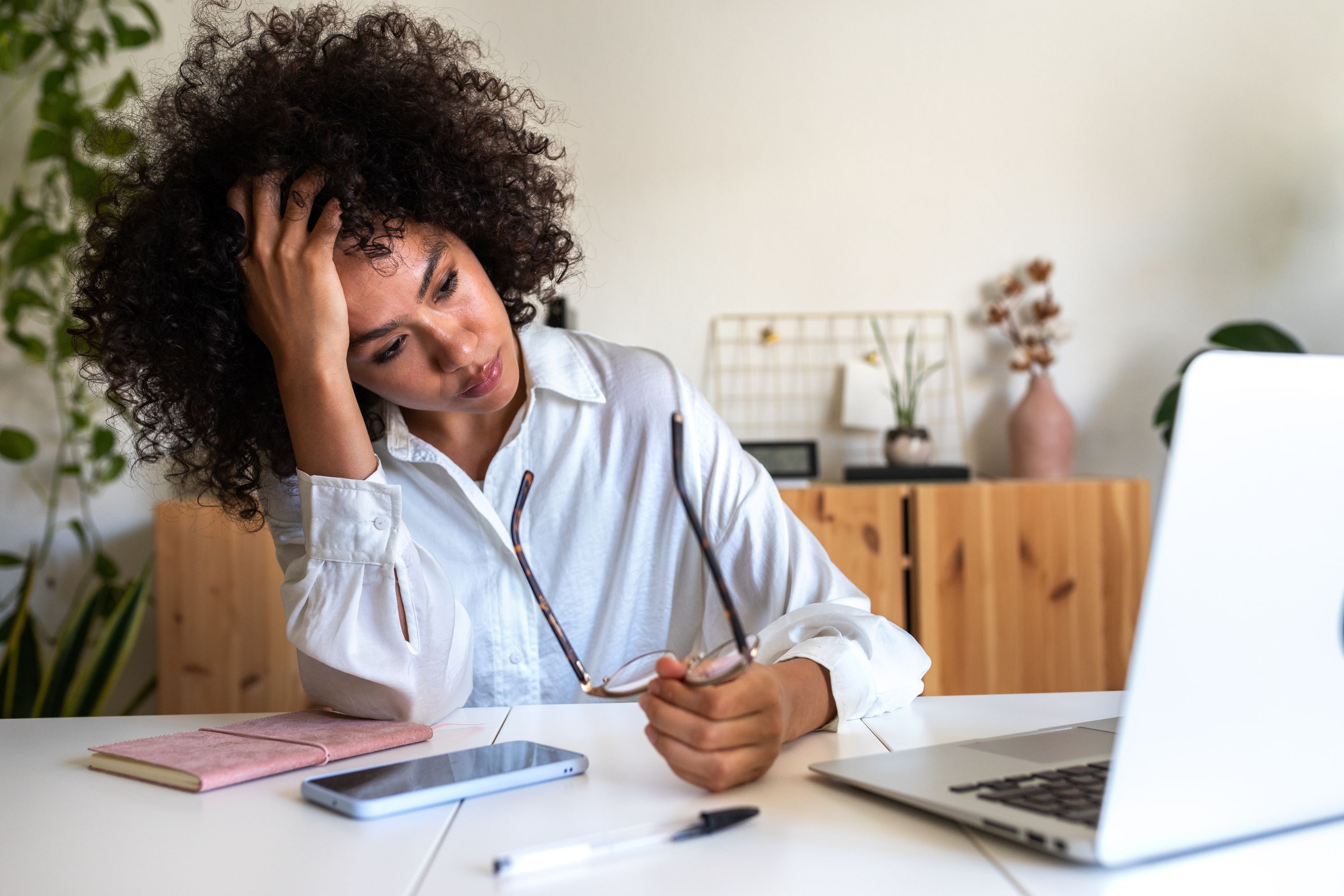
A woman looking stressed sat in front of a laptop
Why does stress cause physical symptoms?
When we're stressed, our body releases certain hormones that can make our muscles tense up and lead to a number of other physical symptoms. The blood vessels contract, allowing less blood and oxygen to get to the tissues, and our heart rate and blood pressure rises.
Victoria Anderson, Clinical Exercise Physiologist & Founder of Longevity Health & Fitness, says: "When you start to feel stressed about something, cortisol, the stress hormone, is released and both physiological and psychological responses are triggered. The main aim of this fight or flight response is to make our body more alert, better focused, and feeling ready to tackle the challenge at hand."
She adds that our bodies are designed to cope with stress, and that it is a positive in small doses - allowing us the motivation, focus and drive to complete tasks and tackle situations. "However, periods of prolonged stress or chronic stress can cause a range of issues such as muscle tension which can lead to back pain, neck pain, contribute to headaches and shoulder pain, as a way of our bodies guarding/protecting us," she adds.
4 relaxation exercises for stress
Kirstie Lucas, trainer at F45 fitness centre in High Street Kensington, explains how you can use exercise to alleviate some of the physical symptoms of stress, including headaches, shoulder pain, back ache and a sore neck.
1. Exercises for headaches
"If you regularly suffer from headaches, these can be caused by tension in your upper body, as you may be clenching from the stress. Certain stretches and relaxation techniques can help to provide you with some comfort," explains Kirstie
She recommends trying child’s pose: "This stretch is restorative, especially if you allow your arms to relax alongside your body. It not only stretches out your upper back to alleviate tension, but it also works to calm the mind."
- Kneel on the floor. Spread your knees outward to the width of your hips. Keep your big toes touching and rest your glutes on your heels.
- Lengthen your spine and place your hands on your thighs.
- Lower your torso between your thighs, reaching your hands out in front of you. Place your forehead on the floor and relax your neck, shoulders and arms. Hold this position for 30 seconds.
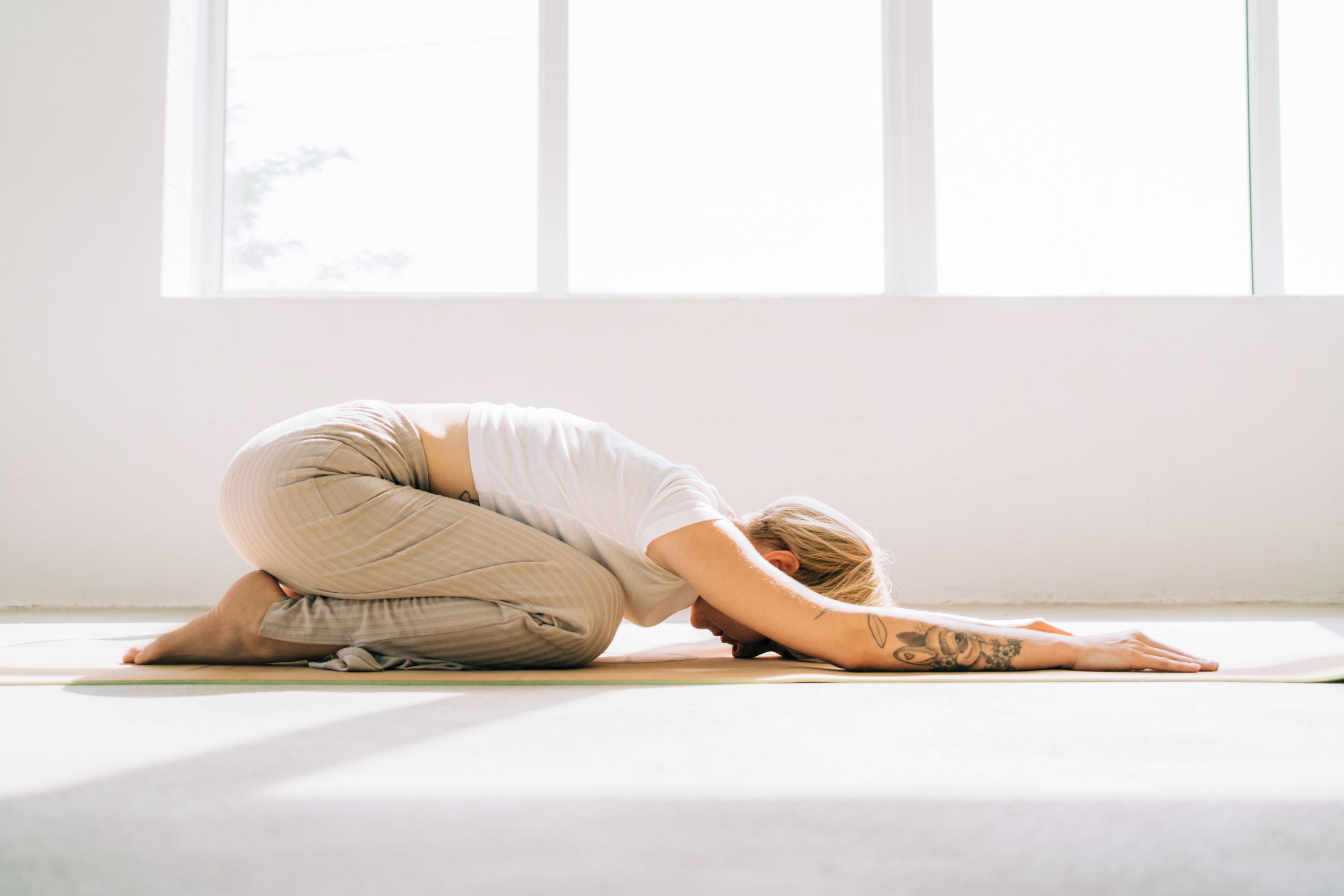
A woman doing child's pose
2. Exercises for shoulder pain
Tension and tightness in your shoulders is a very common symptom caused by stress. Fortunately, shoulder pain caused by stress is very responsive to a good stretch.
Kirstie explains, "A great exercise you could try is called ‘thread the needle’, which helps to release tension not only in your shoulders, but your neck and back too."
- Get on your hands and knees with palms flat on the floor, wrists under shoulders and knees under your hips.
- Slowly slide your right hand on the floor to the left side of your body, gently rotating with the movement. Your right shoulder should touch the floor as you look to the left. Support your weight with your left hand.
- Hold this position for 30 seconds and return to the starting position.
- Repeat on the other side.
- Do this two to three times on each side.
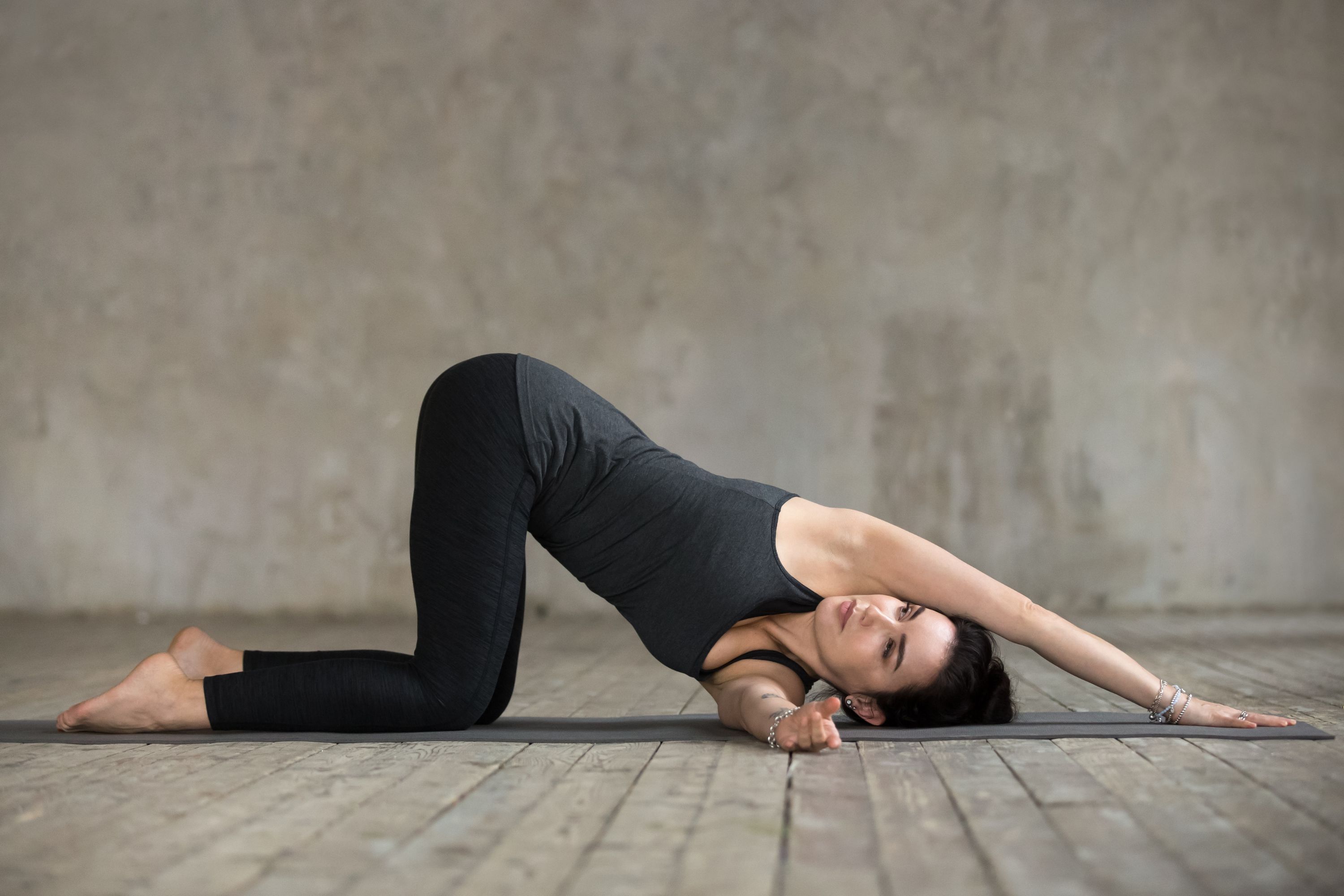
A woman doing the thread the needle pose
3. Exercises for back ache
"Stress is a common cause of backache, as it can cause the muscles to tense up, which leads to stiffness and pain," Kirstie explains. She recommends trying the cat-cow pose to combat this symptom of stress.
- Get onto your hands and knees, with your knees hip-width apart and hands in line with your shoulders.
- Inhale whilst curving your lower back and bringing your head up, tilting your pelvis up like a cow.
- Exhale deeply and bring your abdomen in, arching your spine and bringing your head and pelvis down, like a cat.
- Repeat several times, focusing on your breathing.
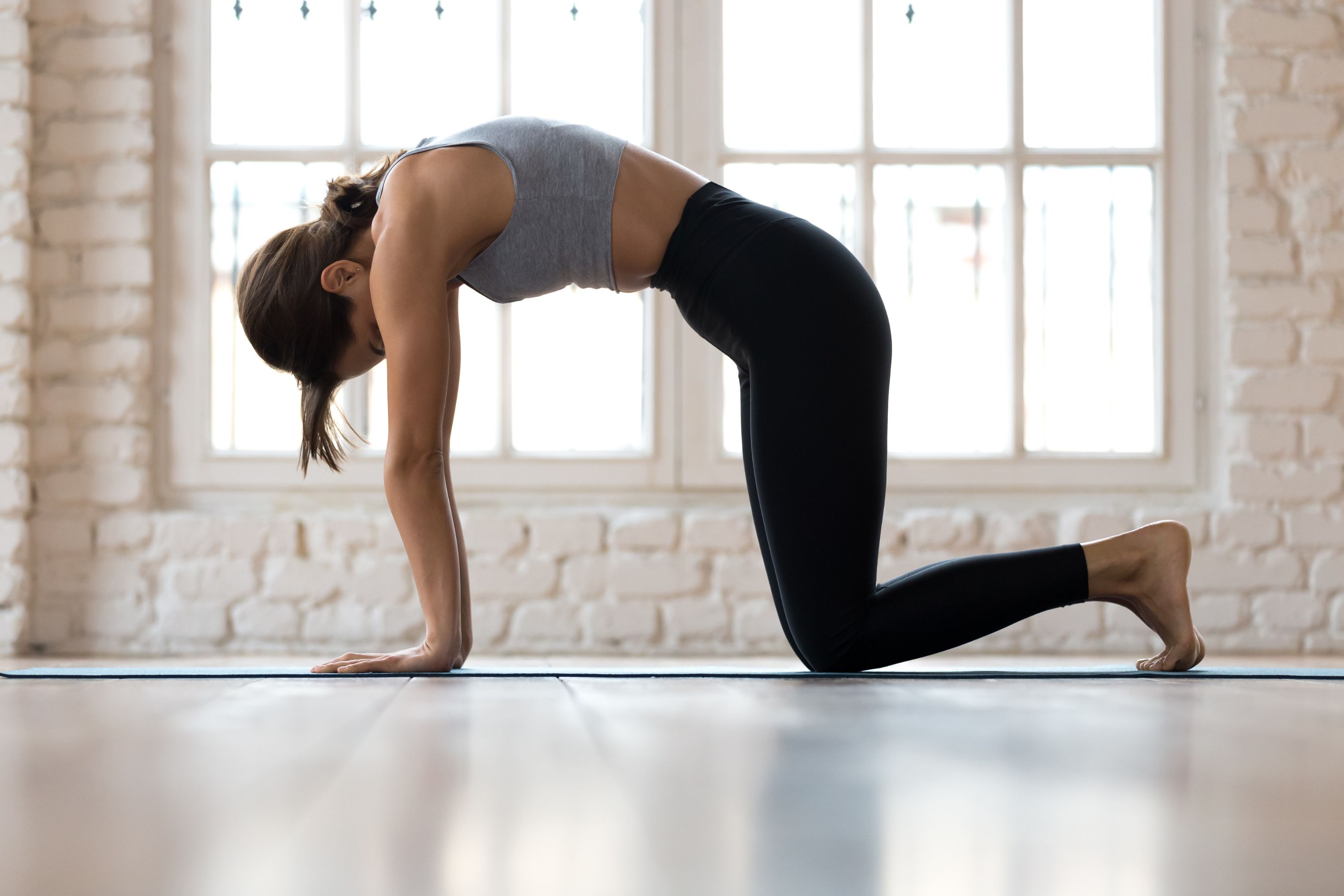
A woman doing cat cow pose
4. Exercises for a sore neck
"Sore neck is extremely common, especially with so many people spending hours on end at their desks hunched over a computer," Kirstie says. She explains that chin tucks are a great exercise, because they target the muscles in the neck to help alleviate tension.
- Sit upright in a chair.
- Gently tuck your chin into your chest, as if you are going to nod.
- Return to the starting position and repeat, you should feel a stretch in the back of your neck which should relieve tension.
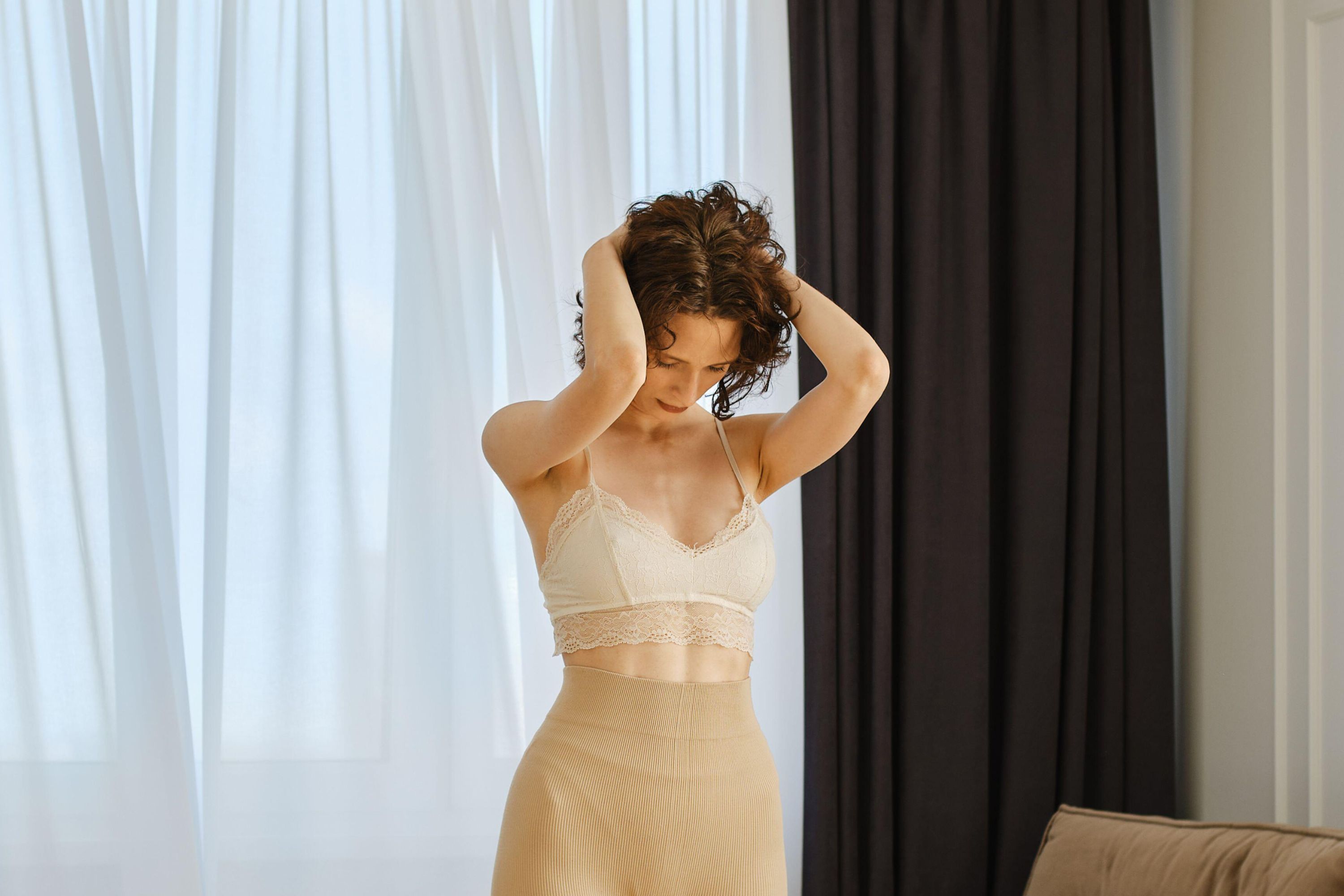
A woman tucking her chin to her chest
If you've been suffering with stress recently, you might want find out how to boost serotonin naturally, or try some of these self-care ideas - they're all free.

Dr. Alisha Esmail works in General Practice and has specialised in Women’s Health, for which she holds both a postgraduate Diploma in Obstetrics and Gynaecology (2021) and a Diploma in Sexual and Reproductive Health (2023). She also provides the fitting of Contraceptive Intrauterine devices and the Subdermal Implants (LOC IUT & SDI, 2023).
Dr. Esmail works part-time as a Medical Advisor to ‘Femtech’ startups, such as Flo Health, and also serves as a Board Trustee for the Sister Circle – a London-based women’s health charity, that supports vulnerable pregnant women and FGM survivors. To unwind, she competes in Latin Ballroom dancing, and enjoys Interior Design.

Victoria works as a Clinical Exercise Specialist to manage chronic conditions, illnesses and injuries. Victoria’s experience is vast, varying from MSK and neurological conditions, pre and post operative rehabilitation, and specialises in elderly populations including falls prevention. Victoria aims to help each individual reach their full potential, living life as active as possible. She also places a real emphasis on supporting not only the client, but the family members too, to educate and encourage the client to make the most of their rehabilitation journey and overall health and well-being. Victoria will be there every step of the way to help overcome any barriers along the way.

Ellie is GoodtoKnow’s Family News Editor and covers all the latest trends in the parenting world - from relationship advice and baby names to wellbeing and self-care ideas for busy mums. Ellie is also an NCTJ-qualified journalist and has a distinction in MA Magazine Journalism from Nottingham Trent University and a first-class degree in Journalism from Cardiff University. Previously, Ellie has worked with BBC Good Food, The Big Issue, and the Nottingham Post, as well as freelancing as an arts and entertainment writer alongside her studies. When she’s not got her nose in a book, you’ll probably find Ellie jogging around her local park, indulging in an insta-worthy restaurant, or watching Netflix’s newest true crime documentary.
-
 Half of Gen Z say their parents 'don't take my mental health concerns seriously', research shows - here are 3 ways to help support older children
Half of Gen Z say their parents 'don't take my mental health concerns seriously', research shows - here are 3 ways to help support older childrenWith research showing that half of teens and young adults feel their parents don't take their mental health concerns seriously, we share how you can show your support.
By Ellie Hutchings
-
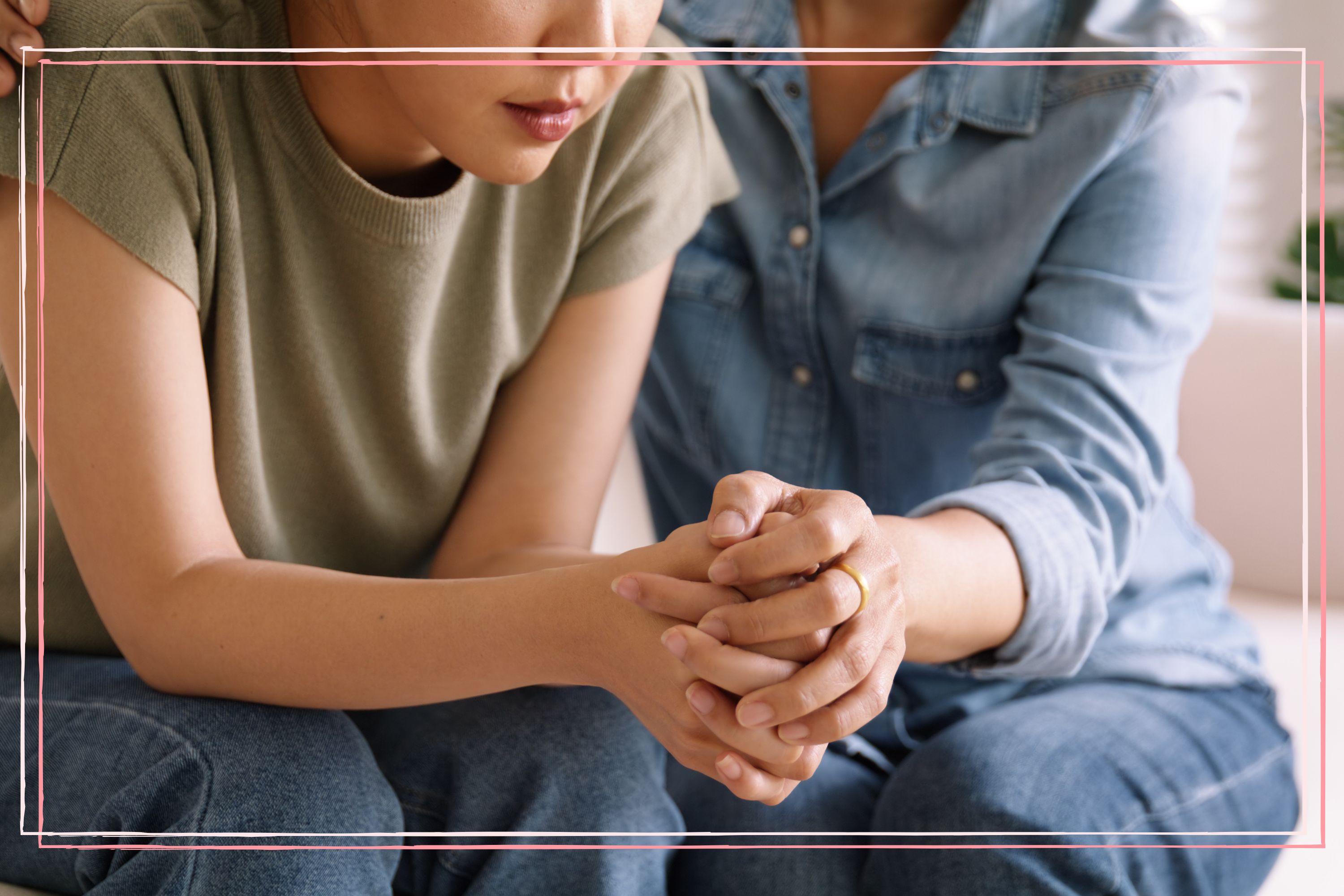 12 signs of depression in children and what to do if you're worried, explained by experts
12 signs of depression in children and what to do if you're worried, explained by expertsKnowing the signs of depression in children is an important step towards being able to get professional help early, to avoid it having a long-term impact on a child's life.
By Ellie Hutchings
-
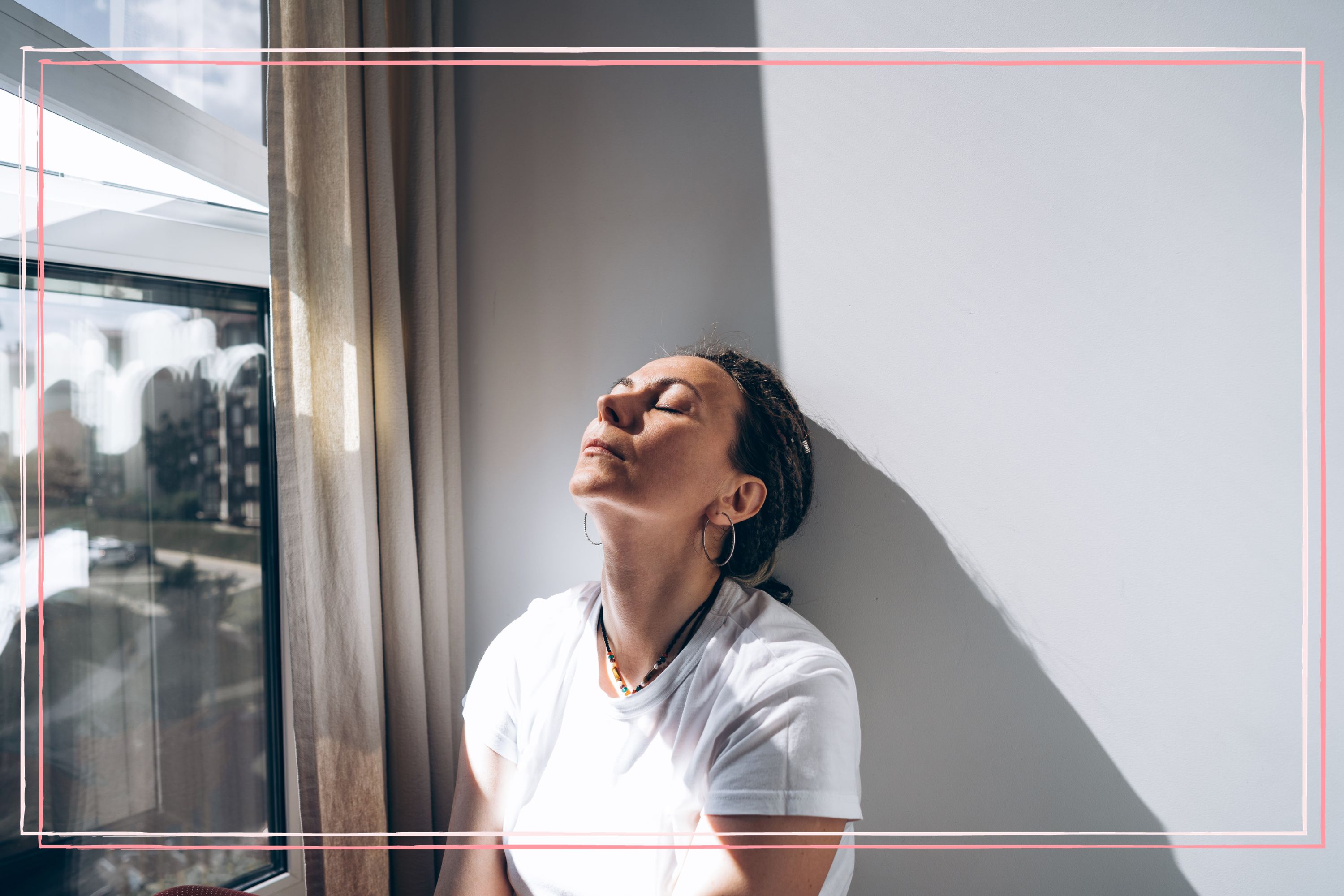 How to manage stress: 12 tips from experts
How to manage stress: 12 tips from expertsIf you want to know how to manage stress, rest assured there are some simple and effective ways
By Debra Waters
-
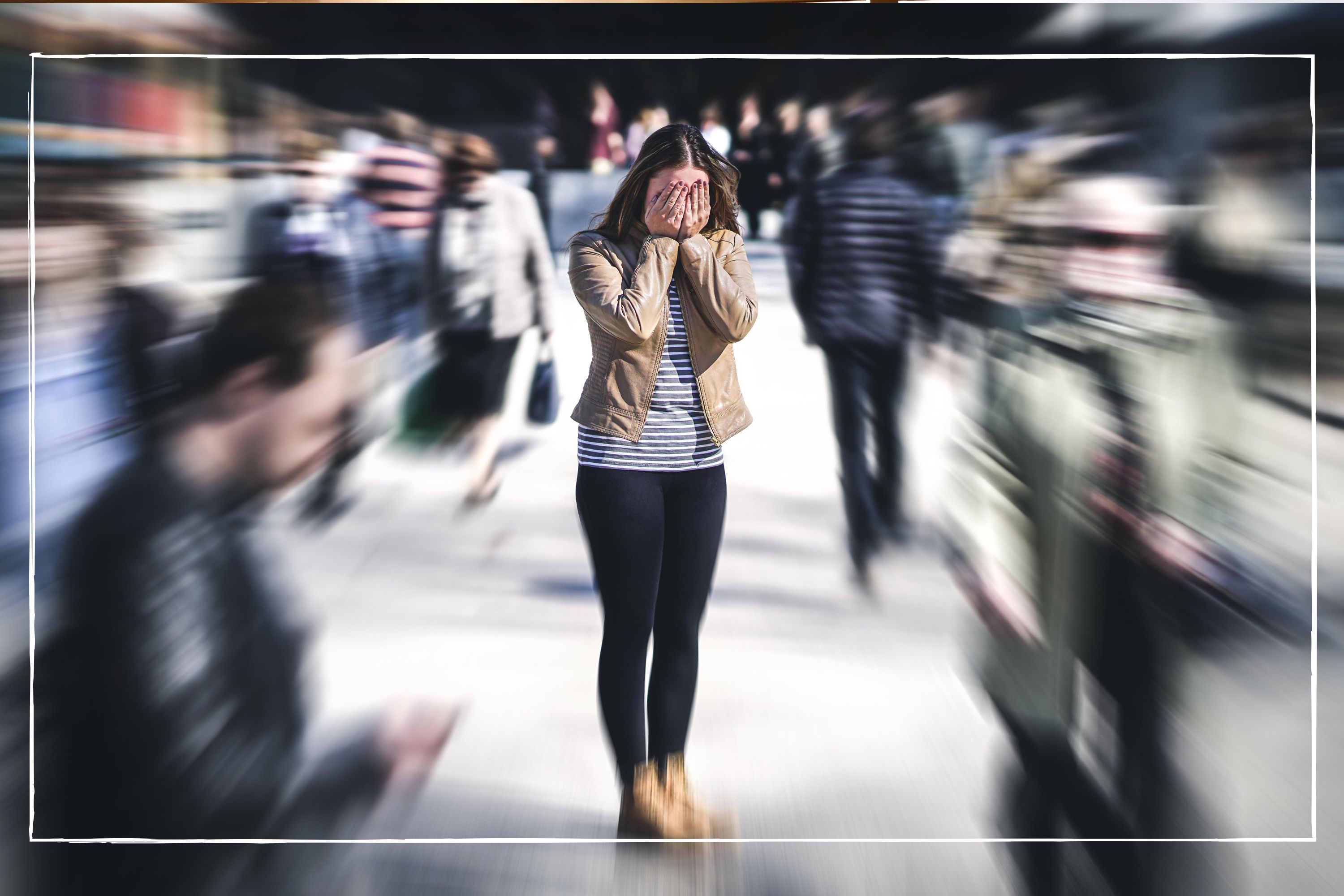 Panic attack symptoms, triggers and how to calm down
Panic attack symptoms, triggers and how to calm downPanic attack symptoms can affect us physically, mentally and emotionally - here's how to ease them, according to medical experts and therapists
By Debra Waters
-
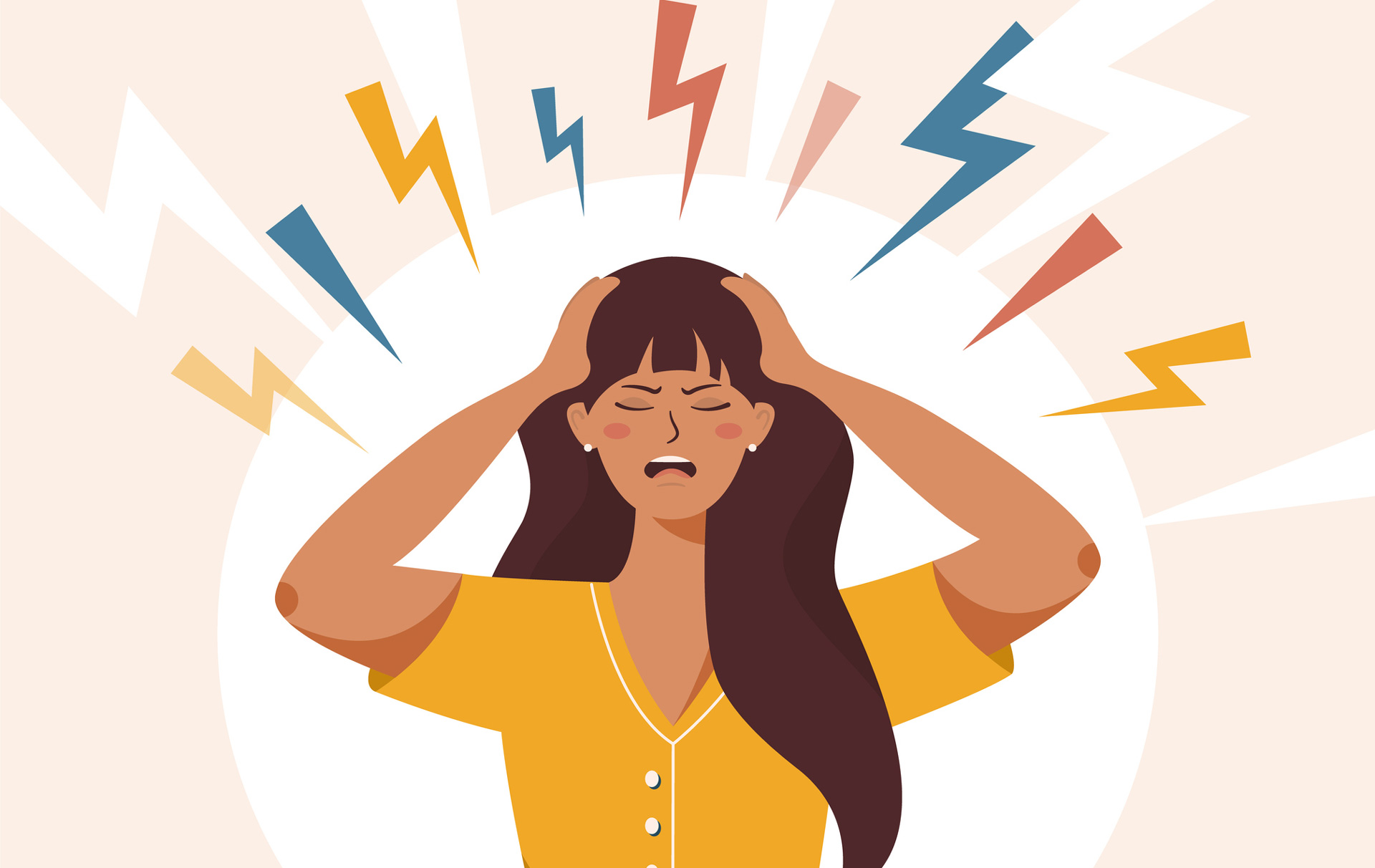 11 signs of stress - and expert tips on how to deal with them
11 signs of stress - and expert tips on how to deal with themWhat stress is, how to cope with the symptoms, and where to turn for help.
By Anna Bailey
-
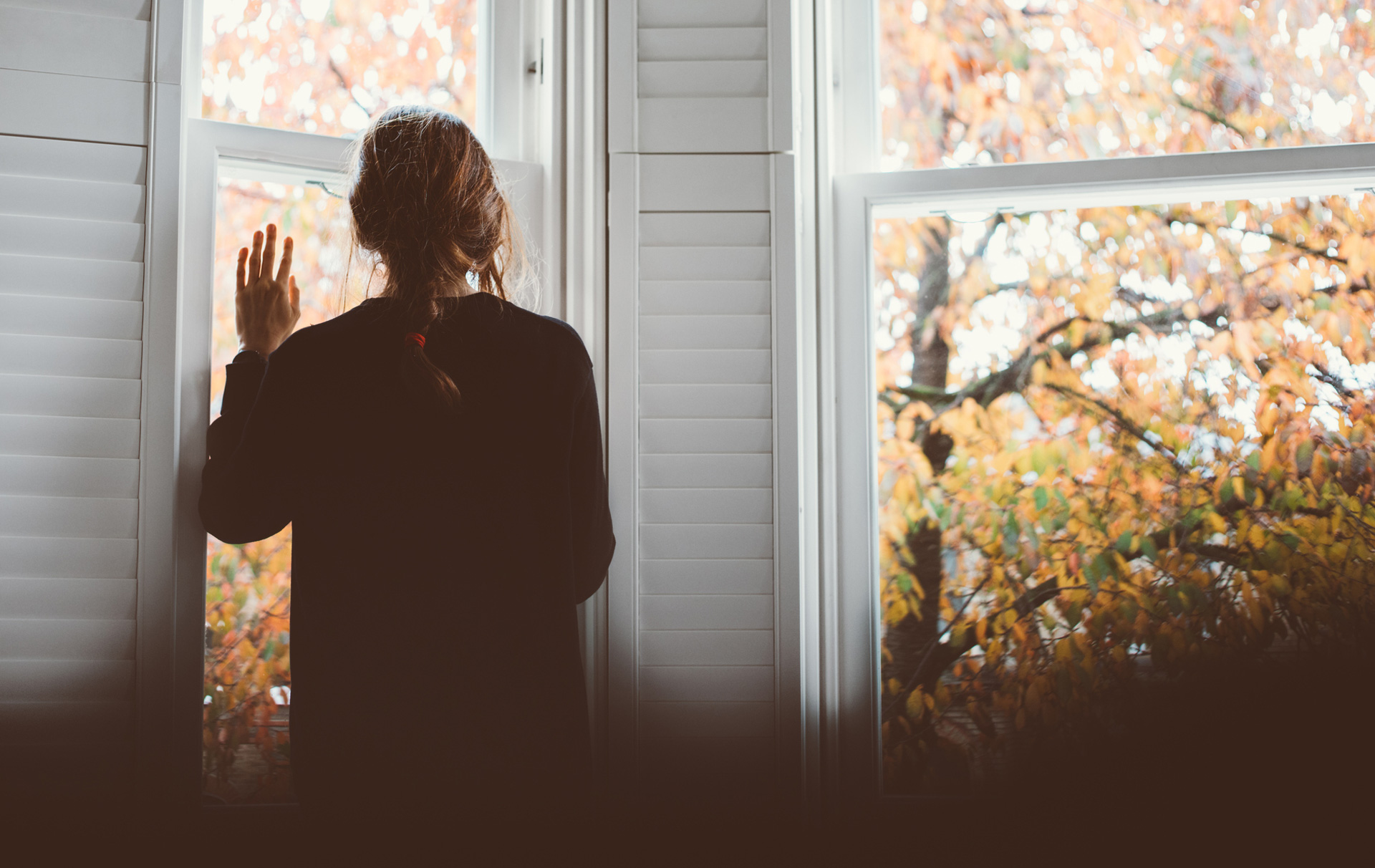 Signs of depression – 11 symptoms to look out for
Signs of depression – 11 symptoms to look out forDepression affects nearly one in five adults in the UK, but when do feelings of sadness become a mental health issue?
By Debra Waters
-
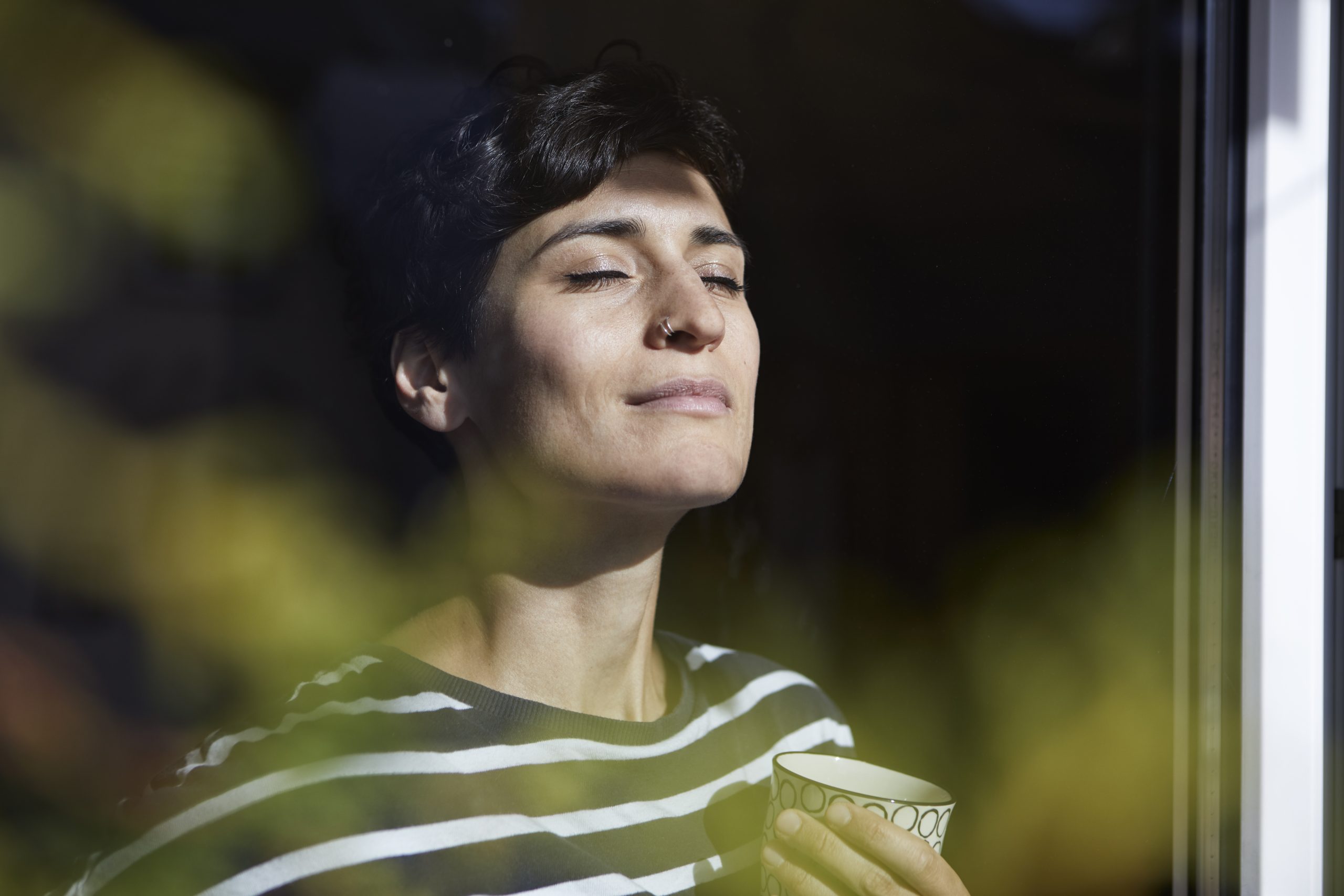 Breathing exercises for anxiety for adults and kids to try at home
Breathing exercises for anxiety for adults and kids to try at homeBy Rose Goodman
-
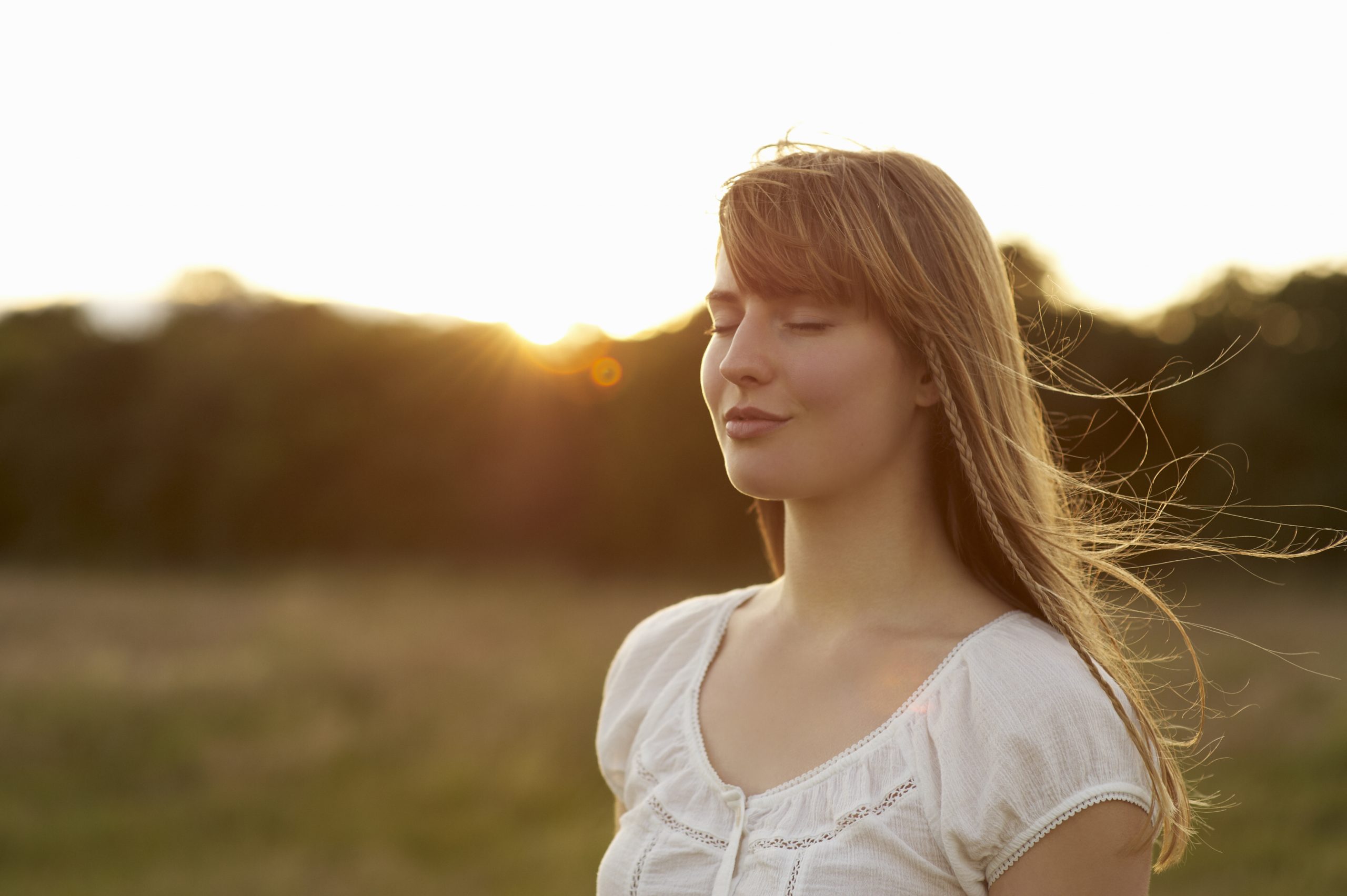 How to practice 'gratitude meditation' - and four other tips to combat stress and burnout
How to practice 'gratitude meditation' - and four other tips to combat stress and burnoutStress is a modern epidemic – 40 per cent of us Brits experience stress and burn-out EVERY day. Could gratitude meditaion help? We explain how, along with other tips for combatting burnout.
By Sharon Sweeney